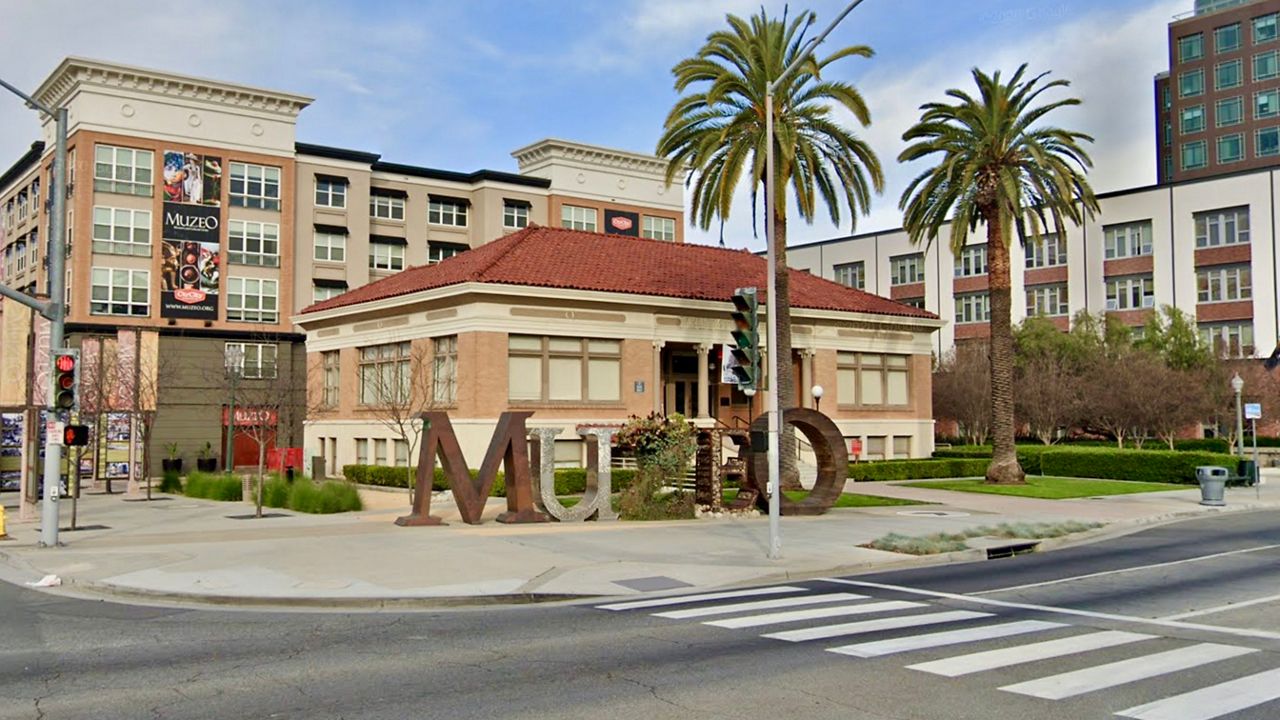ANAHEIM, Calif. — Hammered by the closure of Disneyland and Disney California Adventure and the economic downturn caused by the coronavirus pandemic, Anaheim is looking into borrowing $185 million to cover its budget deficit.
The city faces a $114 million budget shortfall and would look into borrowing, cost-cutting, and federal assistance to close the gap for the city's current and next year's fiscal budget, Anaheim spokesman Mike Lyster said.
"We are in an unprecedented situation," Lyster said. "We've never seen anything like this. Not even during the Great Recession did we see this kind of impact."
City officials released the mid-year budget update after hosting a workshop briefing the city council on the dire financial situation last month.
Anaheim is among several cities across the state facing budget shortfalls due to the downturn. Santa Monica is projecting a $72 million shortfall by the end of its fiscal year in June. Newport Beach has a $33 million shortfall. San Francisco is facing a $116 million budget deficit. The city of Los Angeles faces a $400 million to $600 million deficit.
While Newport Beach has found ways to cover its current shortfall without significant cost-cutting, Anaheim is saddled with a large pension obligation and a budget that relied heavily on tourism dollars such as hotel stays and sales tax.
The state-mandated closure of Disney's two major theme parks, the Anaheim Convention Center, Angel Stadium, and the Honda Center, to slow the coronavirus spread has hurt the city's tourism revenue. Pre-pandemic, the city attracts more than 25 million visitors a year. For the past several months, Anaheim Mayor Harry Sidhu, along with Disney and other members of the business community, have pushed the governor to reopen theme parks, fearing a second great recession if the theme parks and other nonessential businesses remain closed.
However, Gov. Gavin Newsom pushed back due to the state's rising number of coronavirus cases. In December, California became the first state in the nation to hit 2 million COVID-19 cases. As of Tuesday, there are 2.4 million coronavirus cases and nearly 27,000 deaths related to COVID-19.
This year, Anaheim estimates that it would collect $21.4 million in transient occupancy tax this fiscal year, down 75% from a projected $83.7 million; and a decrease of 83% or $123 million from the prior fiscal year.
The city's projected sales tax revenue is also down. The city expects to collect $57.8 million, down from the projected $75.7 million this year and 25% from the $77.1 million last fiscal year.
So far, Lyster said the city had saved about $20 million with no layoffs to city personnel. The city implemented a hiring freeze, and 90 staff members took advantage of an early retirement program. The city also has frozen spending on certain programs.
But as the pandemic continues and with the city looking at every corner to balance the budget, "everything is on the table," Lyster said. "We will look at all forms of cost-cutting, and that could involve labor."
Lyster said the city has to borrow. Cutting its way out of this hole is not feasible.
"The gap is so big that cutting would involve dramatic changes in the delivery of service to residents," he said. "You would be dramatically impacting residents and not end up filling up the entire deficit that we have… The gap that we face is so significant."
Lyster said the city does not have specifics yet on what type of financing the city would issue to cover the deficit. Most typically, it would be some general obligations or revenue bonds. The city council will ultimately decide later this year.
According to city staff, they estimate borrowing at an annual interest rate of 3.12% for 20 years and 3.56% for 30 years could cost the city $14.4 million a year for 20 years or 11.3 million annually for 30 years, respectively.
The money borrowed will go toward the budget shortfall and possibly, the city's unfunded pension obligation. The city's long-term pension obligation is $2.7 billion, Lyster said. About $1.9 billion is funded, but the city's unfunded obligation is $817 million.
Anaheim currently pays $61 million a year in general fund pension costs, and it rises every year, Lyster said.
"For us, this is unprecedented," he said, adding that during the Great Recession, places such as Disneyland, the convention center, Angel Stadium, and Honda Center were still open and operating at full levels. "We are entering the 10th month of closures of our major revenue drivers. You can just imagine the impact that has when you lose something like that. It has had a tremendous impact on our budget."
Lyster said the city has to look into borrowing money to cover its shortfall in the near term. Long-term, he expects the city to fully recover once Disney's theme park and the convention reopen, as well as the announced construction and development of major projects around the Honda Center and Angel Stadium.
"This is what we hope to be a relatively short-term phenomenon of our theme parks and major drivers of our economy closed due to the pandemic," he said. "But we do see that eventually changing. As we look further out, we are bullish on our recovery. Long-term, we have a very bright future."



